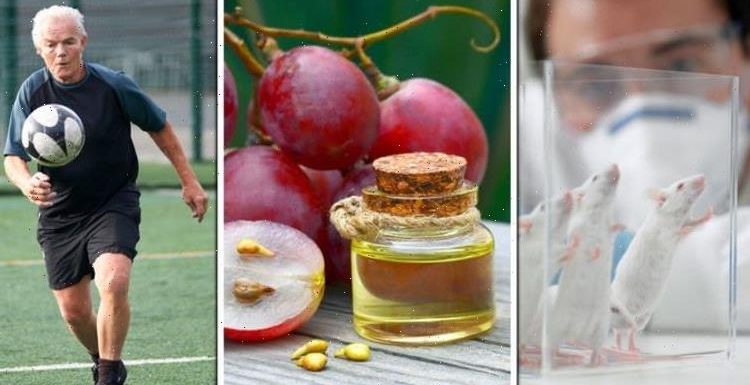
Brussels: Crowds protest over health worker vaccination rules
We use your sign-up to provide content in ways you’ve consented to and to improve our understanding of you. This may include adverts from us and 3rd parties based on our understanding. You can unsubscribe at any time. More info
A team of researchers across various institutions in China and the US have discovered that grape seed extract may have compounds present in them that slow down the ageing process. The scientists discovered this when they injected older mice with a chemical known as procyanidin C1 (PCC1), which is found in grape seed extract.
They found that these older mice would then go on to live longer.
In a paper they published in the journal Nature Metabolism, the group describes the link between this compound and extended lifespan in mice and the experiments they carried out with the material.
For many years, scientists have been trying to figure out how to make humans live longer.
From beans and broccoli to berries, various common food items have been touted as the secret to an increased lifespan.


The researchers hope that after further studying PCC1, they can slow or stop the ageing process to allow people to live longer or to live in a more healthy way as they age.
During this study, the researchers looked at 46 plant extracts looking for anti-aging capabilities when they came across PCC1.
While conducting initial tests, they found that it reduced the number of senescent cells in the human prostate, which are known to contribute to ageing.
Intrigued, they decided to test it further and found that at low doses the PCC1 prevented senescent cells from contributing to inflammation.

Meanwhile at higher doses it would kill the senescent cells outright without harming any other cells.
The researchers then decided to focus on PCC1 and tested its effects on 171 mice, 91 of whom were considered to be old.
They found that the compound increased the overall lifespan of the mice by nine percent and their remaining lifespans by 60 percent, on average.
The scientists also tested PCC1 on younger mice and found that when injecting younger mice with the extract chemical over a period of four months, they had improved their physical fitness.
DON’T MISS:
Priti Patel extends deadline for asylum applications [REVEAL]
Inmates take swift revenge on tragic Arthur’s ‘evil’ stepmother [INSIGHT]
Covid: Boris can’t impose ANY more lockdowns after party [LIVE]


They also tested the effects of the chemical on cancerous tumours and saw that doing so helped to shrink tumours when given in conjunction with chemotherapy.
They even tried injecting human tumour cells into the mice and saw similar results, which adds a lot of hope for medical research.
Despite all of this testing and a high dose of PCC1 in some mice, the researchers found no damage to normal cells.
This suggests that PCC1 could become a promising therapeutic treatment for a wide variety of conditions and could very well reduce some of the negative impacts of ageing.
The scientists concluded that report by saying that more work is required to further test its effectiveness and to ensure that it does not result in negative side effects.
Source: Read Full Article